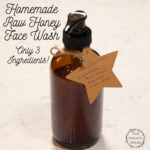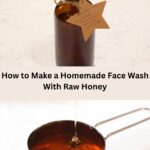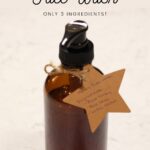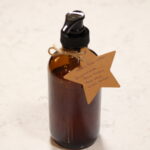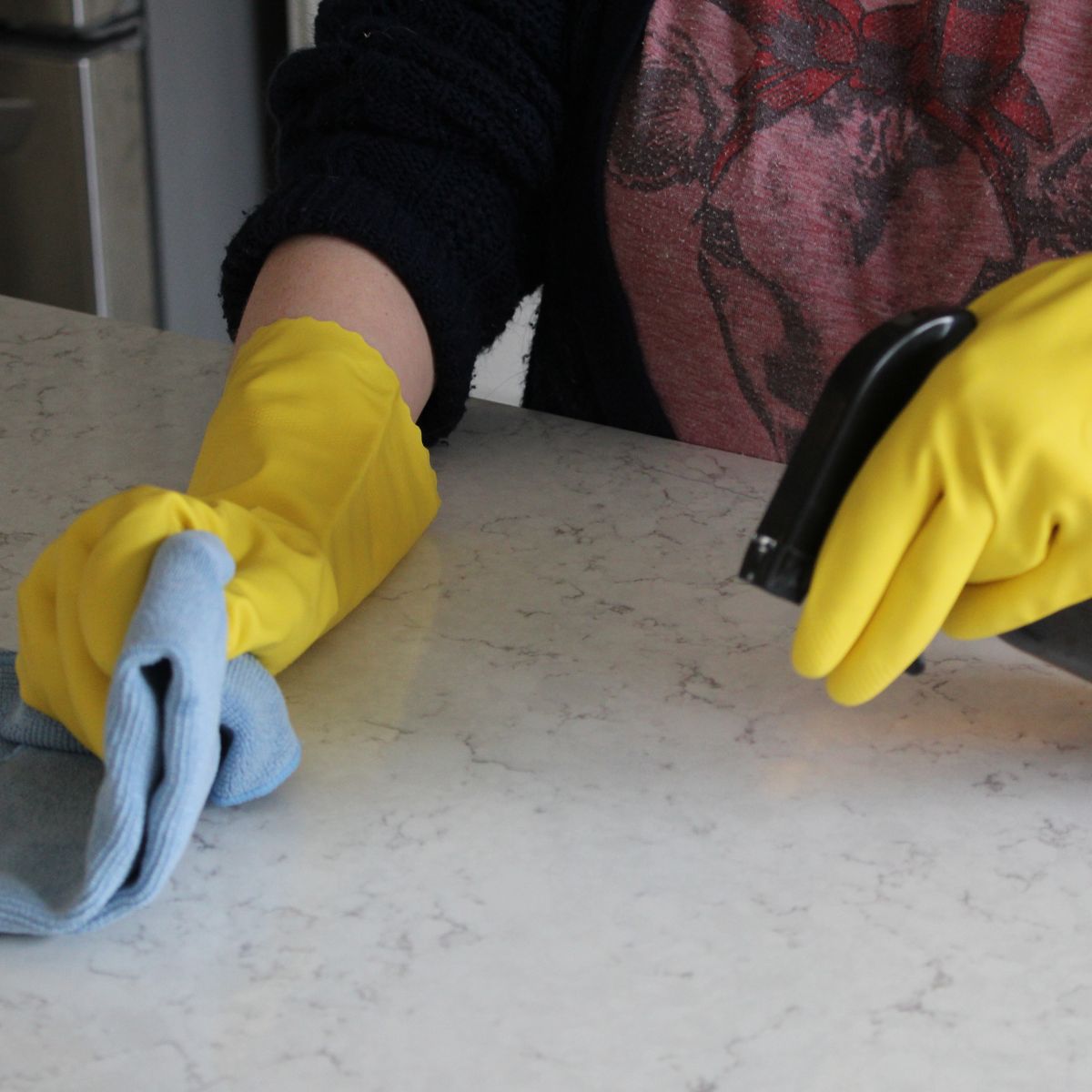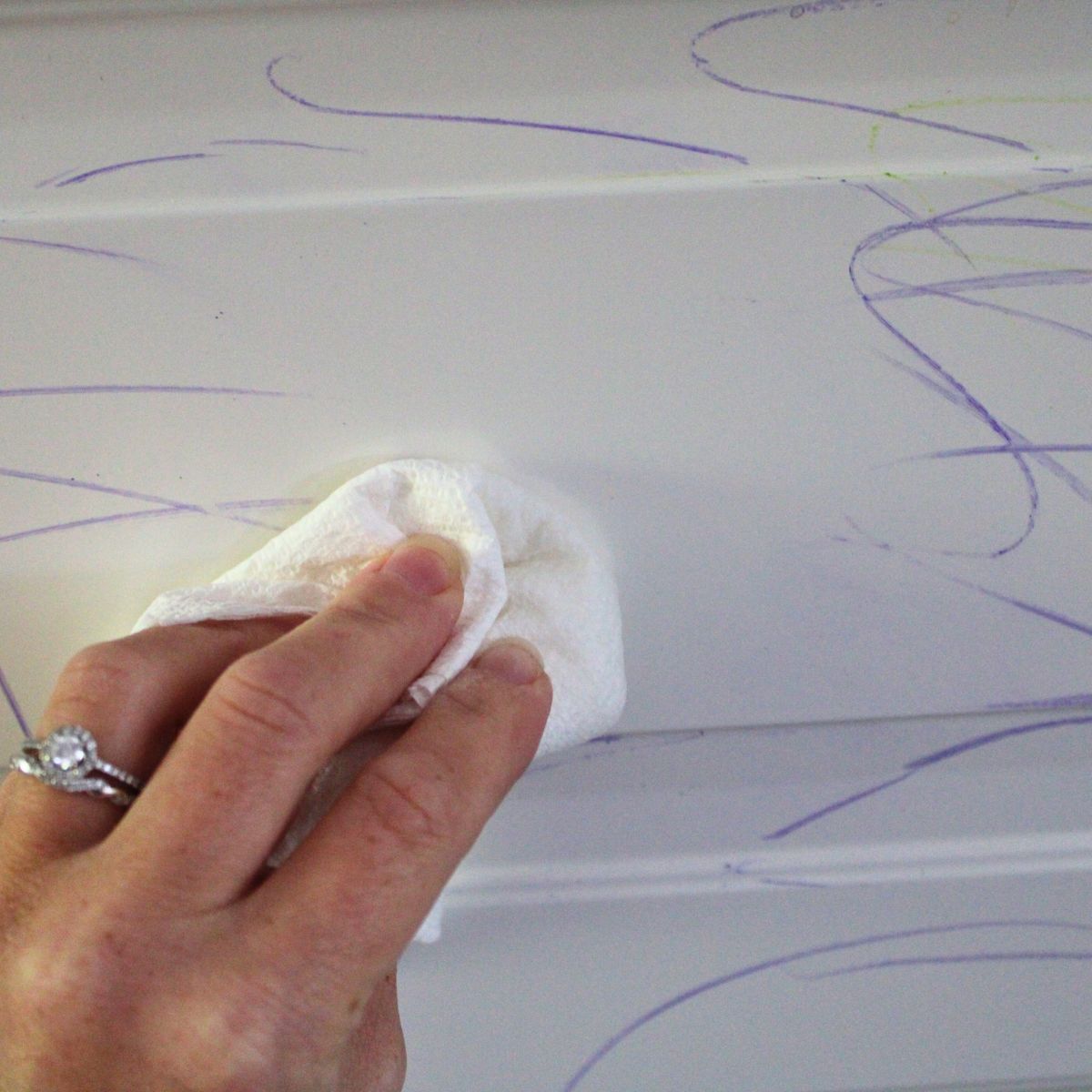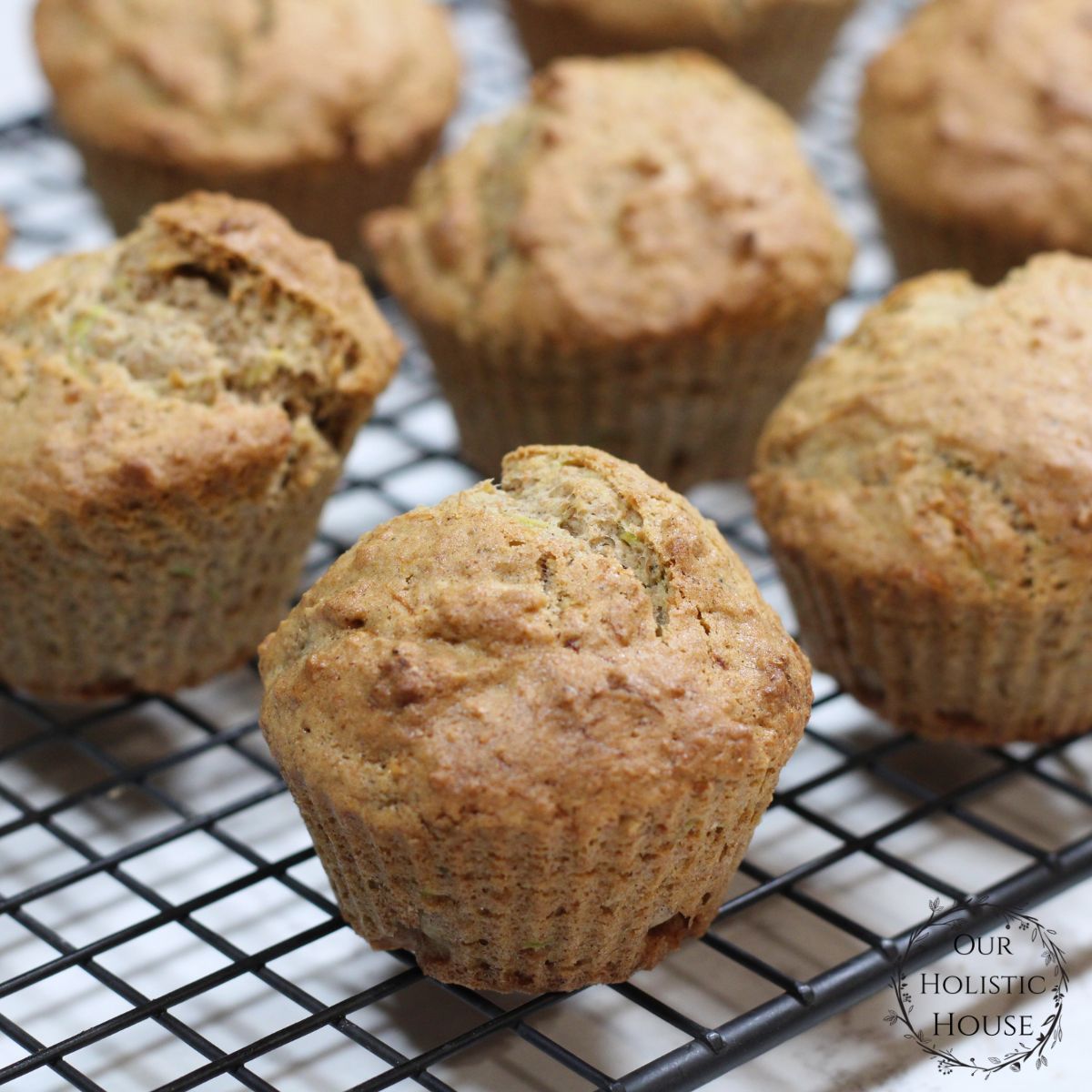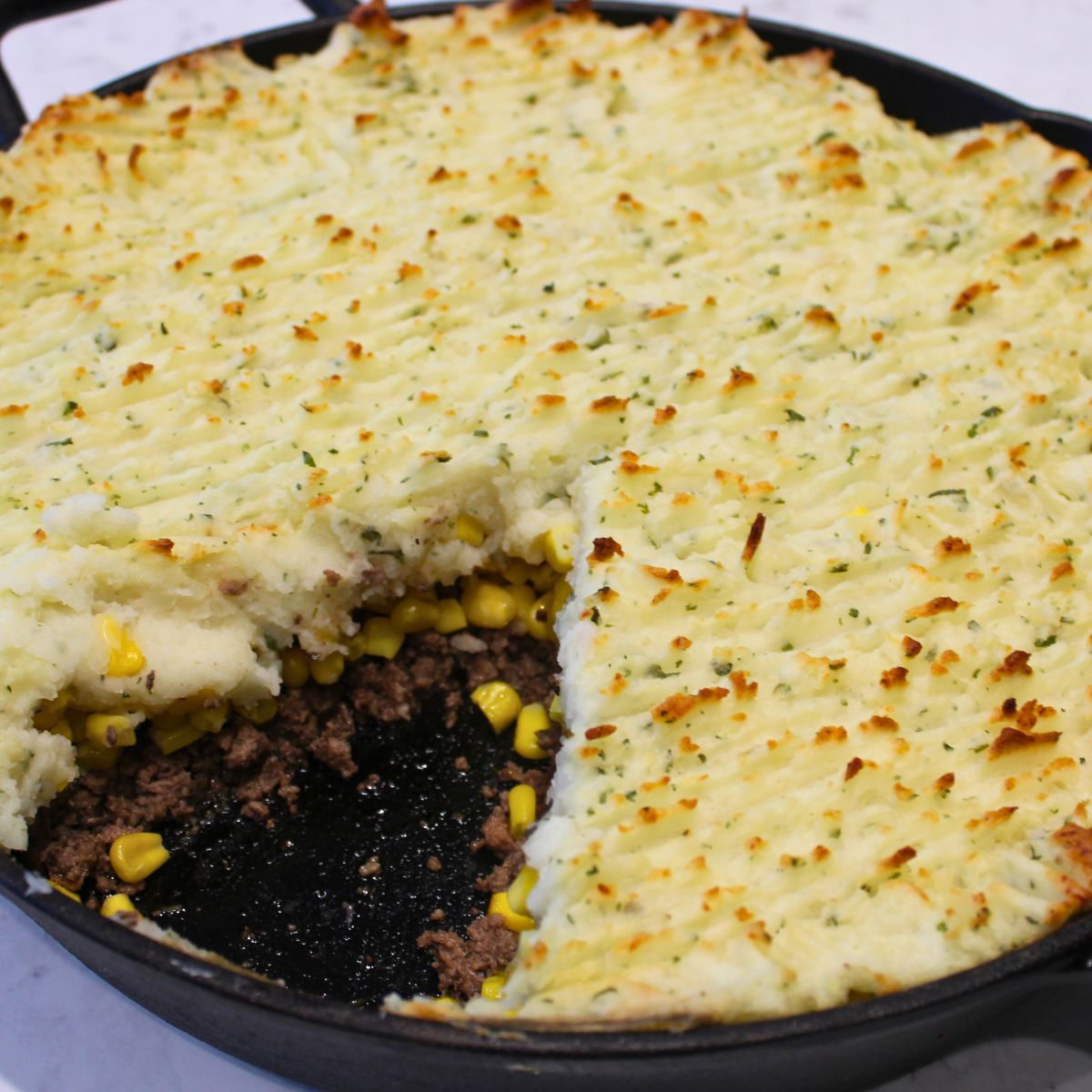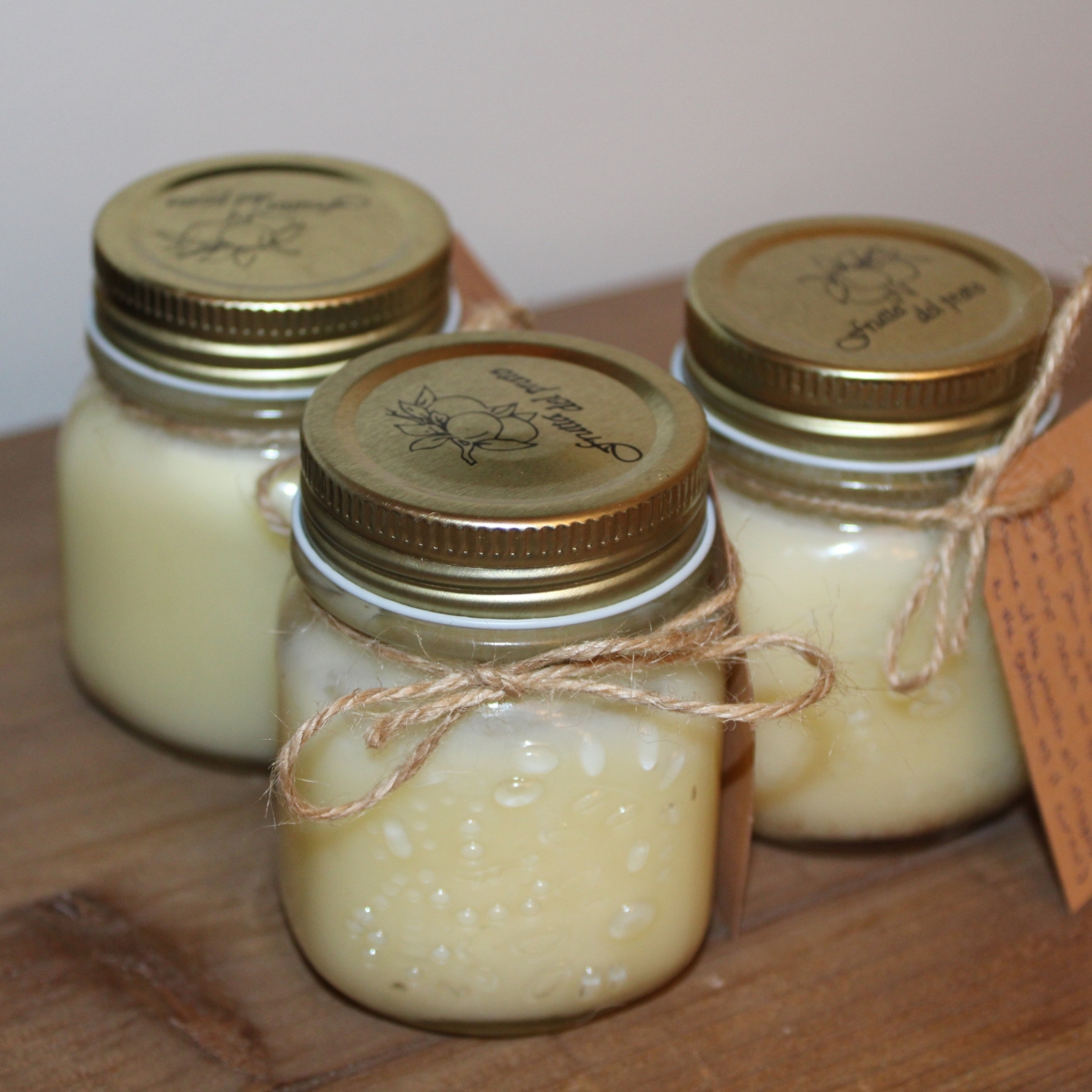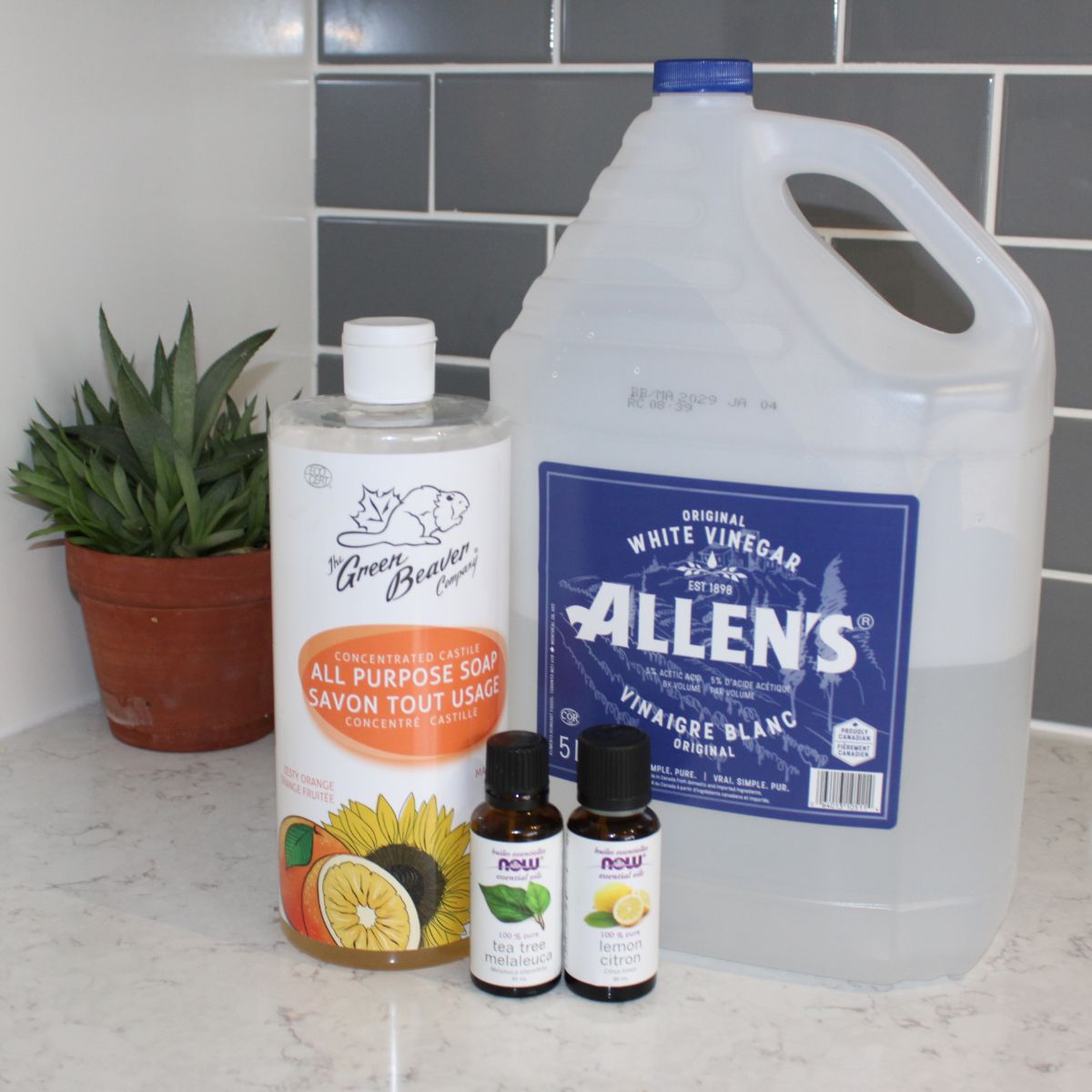How to Make a Homemade Face Wash With Raw Honey
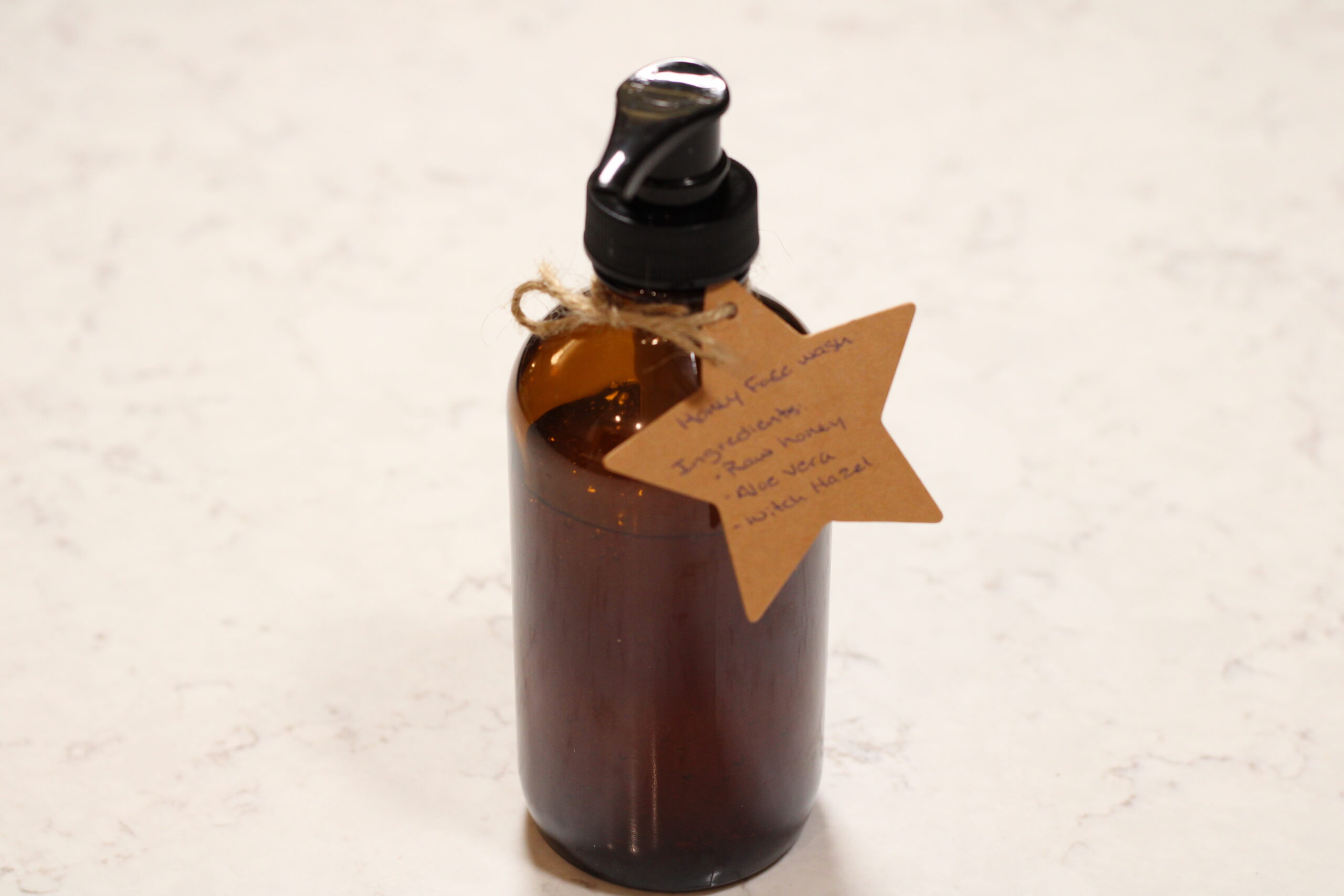
I am of the opinion that the best skin care routine is a quick, easy, and inexpensive one. With just three simple ingredients, this Homemade Raw Honey Face Wash comes together quickly, and is a cost-effective addition to any natural skincare routine. Offering a solution for sensitive skin, acne-prone skin, and mature skin, this natural cleanser caters to the unique requirements of many different skin types. Featuring raw honey as the main ingredient, its antimicrobial properties gently cleanse and naturally support the health of the skin. And the customizable nature of this recipe will allow you to tailor your facial cleanser to your specific needs. Embrace the beauty of natural ingredients and say goodbye to harsh cleansers, as this homemade face wash is sure to become your go-to solution for a radiant and revitalized complexion!
Benefits of Raw Honey for the Skin
Raw honey has many beneficial properties when it comes to supporting skin health, making it the perfect base for any homemade facial cleanser recipe.
Antibacterial Properties
The natural antibacterial properties of raw honey, primarily made up of hydrogen peroxide, make it effective at cleansing the skin and preventing bacterial growth. It can be particularly beneficial for individuals with acne-prone skin.
Natural Humectant
Raw honey is a powerful humectant, helping to attract and retain moisture in the skin. This makes it an ideal ingredient for maintaining hydration, and a perfect solution for sufferers of dry skin.
Antioxidant Rich
Raw honey contains antioxidants that help protect the skin from free radical damage, supporting overall skin health.
Gentle Exfoliation
Raw honey has mild exfoliating properties that can help gently remove dead skin cells, unclog pores, and promote a smoother complexion.
Anti-Inflammatory
Raw honey has anti-inflammatory properties, making it effective in calming redness and inflammation. It can be particularly helpful for individuals with sensitive or inflamed skin.
Brightening Effect
Regular use of raw honey can contribute to a brighter complexion.
pH Balancing
Raw honey helps balance the pH levels of the skin, supporting a healthy and naturally radiant complexion.
Scar Reduction
Raw honey may aid in the reduction of the appearance of scars and blemishes over time, promoting even-toned skin.
Manuka Honey
There is research to suggest that raw Manuka honey has greater antibacterial activity than regular raw organic honey, but this also comes with a bigger price tag, which is why I chose raw organic honey for this recipe instead.
Raw vs Pasteurized Honey
Choosing raw honey over pasteurized alternatives is crucial for preserving the full spectrum of beneficial enzymes, antioxidants, and nutrients present in honey. The pasteurization process involves heating honey to high temperatures, which can destroy these heat-sensitive compounds and diminish its potential health benefits. Raw honey, on the other hand, retains its natural state, ensuring that it provides maximum nourishment for the skin when used in DIY face wash recipes.
Aloe Vera Benefits for Skin
Aloe Vera is best known for soothing sun burnt skin, but did you know it also has many other benefits to supporting skin health that make it the perfect addition to our homemade face wash with raw honey?
When looking for aloe vera to include in your homemade facial cleanser, it’s essential to choose an alcohol-free version to avoid potential drying effects on the skin.
Hydration
Aloe vera’s rich water content provides the skin with intense hydration. This helps maintain moisture levels, making it suitable for all skin types, including dry skin.
Soothing and Calming
Known for its anti-inflammatory properties, aloe vera is highly effective in soothing and calming irritated or inflamed skin.
Gentle Cleansing
Aloe vera’s gentle cleansing properties help remove impurities and excess natural oils from the skin without causing irritation. It is a mild yet effective option for daily cleansing.
Acne Treatment
Aloe vera has antibacterial properties that make it helpful in supporting acne-prone skin. It helps combat acne-causing bacteria and may reduce the severity of breakouts.
Anti-Aging
The antioxidants present in aloe vera help support a youthful complexion.
Even Skin Tone
Aloe vera helps contribute to a more even skin tone. It may help fade dark spots, hyperpigmentation, and blemishes, promoting a clearer complexion.
Pore Tightening
Aloe vera has a natural astringent effect that helps tighten pores, making it beneficial for those with oily or combination skin, contributing to a smoother skin texture.
Witch Hazel Benefits for Skin
Witch hazel comes from the leaves and bark of the Hamamelis virginiana plant (more commonly known as the American Witch Hazel Plant, native to North America. Incorporating it as part of a natural face wash recipe offers a variety of benefits. When incorporating witch hazel into a natural facial cleanser recipe, like the aloe vera it’s important to choose an alcohol-free version. Combining witch hazel with other soothing and nourishing ingredients can create a gentle and effective cleanser that addresses various skin concerns while promoting a healthy and refreshed complexion.
Natural Astringent
Witch hazel acts as a natural astringent, helping to tighten and tone the skin. This makes it effective for reducing the appearance of enlarged pores and controlling excess oil production.
Gentle Cleansing
Witch hazel is a mild yet effective cleanser, removing dirt, oil, and impurities from the skin without causing irritation. It is suitable for various skin types, including sensitive skin.
Anti-Inflammatory Properties
Witch hazel possesses anti-inflammatory properties, making it beneficial for calming redness and inflammation. It can be particularly helpful for individuals with sensitive or irritated skin.
Acne Support
The astringent properties of witch hazel make it effective in supporting acne-prone skin by reducing inflammation and helping to prevent the development of new blemishes. It can also assist in naturally balancing oil levels.
Scar Reduction
Regular use of witch hazel may contribute to the reduction of scars and blemishes.
Antioxidant Protection
Witch hazel contains antioxidants that help protect the skin from free radicals, supporting overall skin health.
How to Make a Homemade Face Wash With Raw Honey
Equipment Needed
- small mixing bowl
- 8 oz. glass pump bottle
Ingredients
- 1/2 cup Raw Organic Honey (sometimes labeled as natural or unfiltered honey)
- 1/4 cup Pure Aloe Vera Gel (alcohol free)
- 2 TBSP Witch Hazel (alcohol free)
Instructions
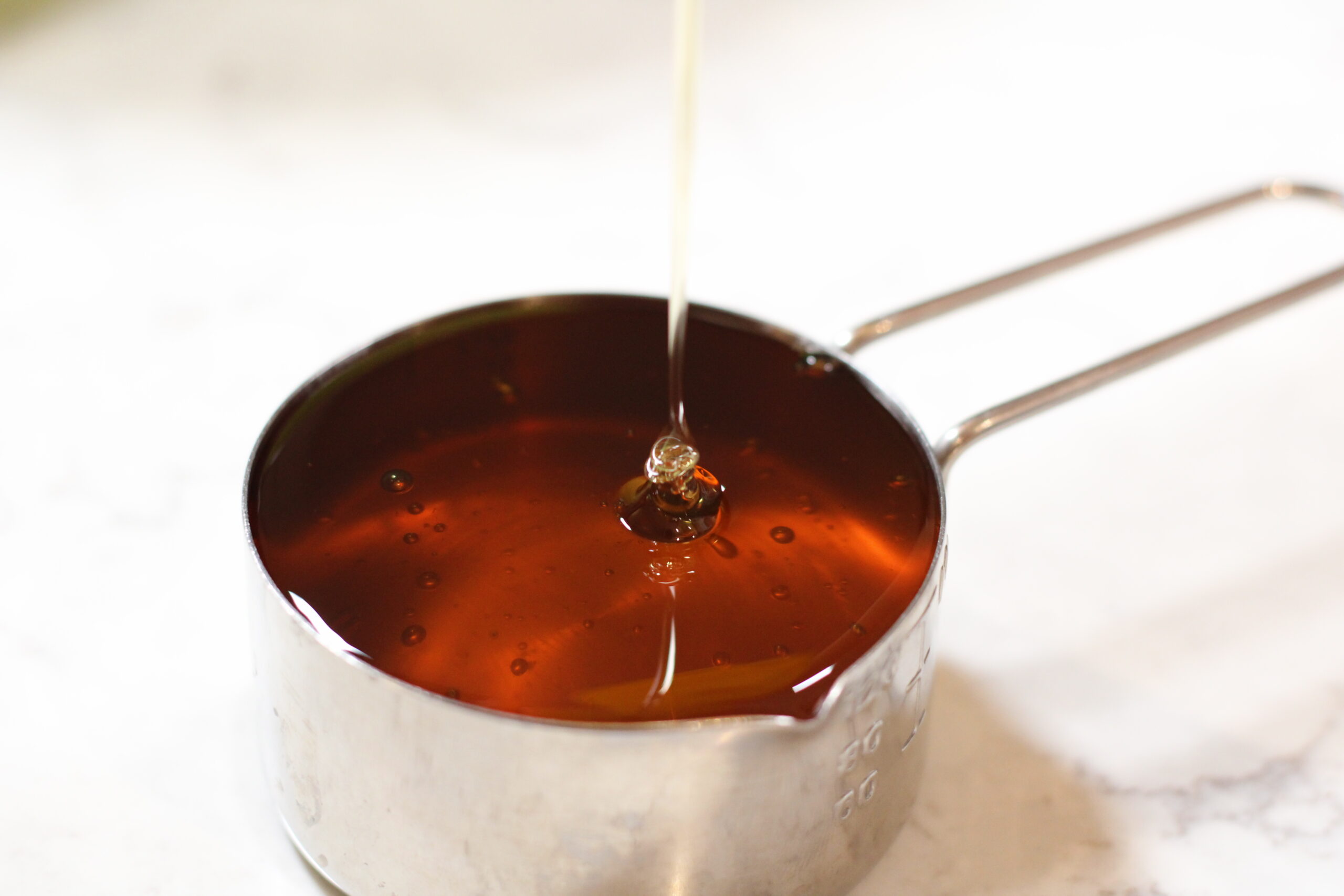
Add all ingredients to a small mixing bowl
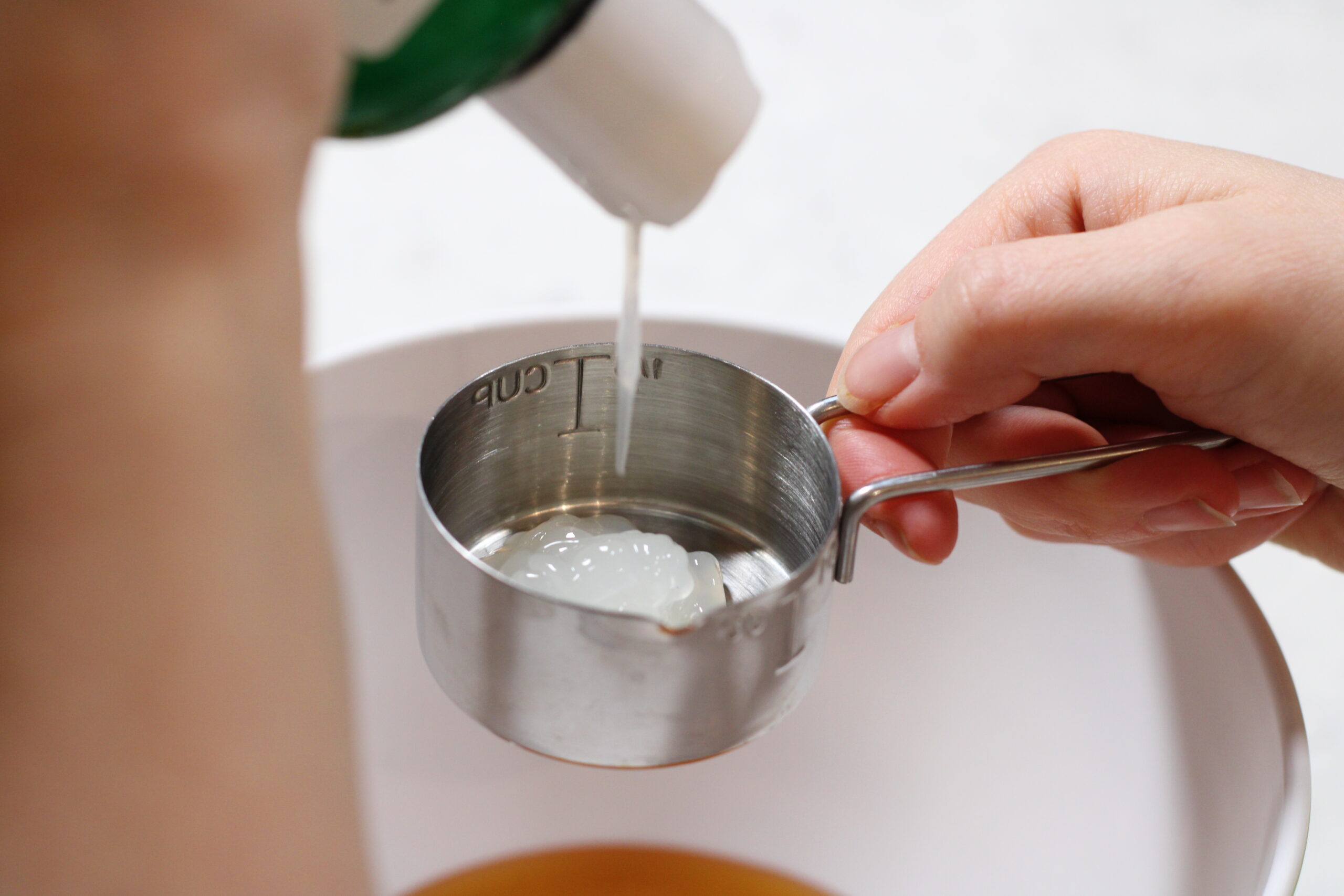
Using a fork or a small whisk, mix the ingredients thoroughly. Ensure that the honey is well incorporated with the aloe vera and witch hazel to form a smooth and consistent mixture.
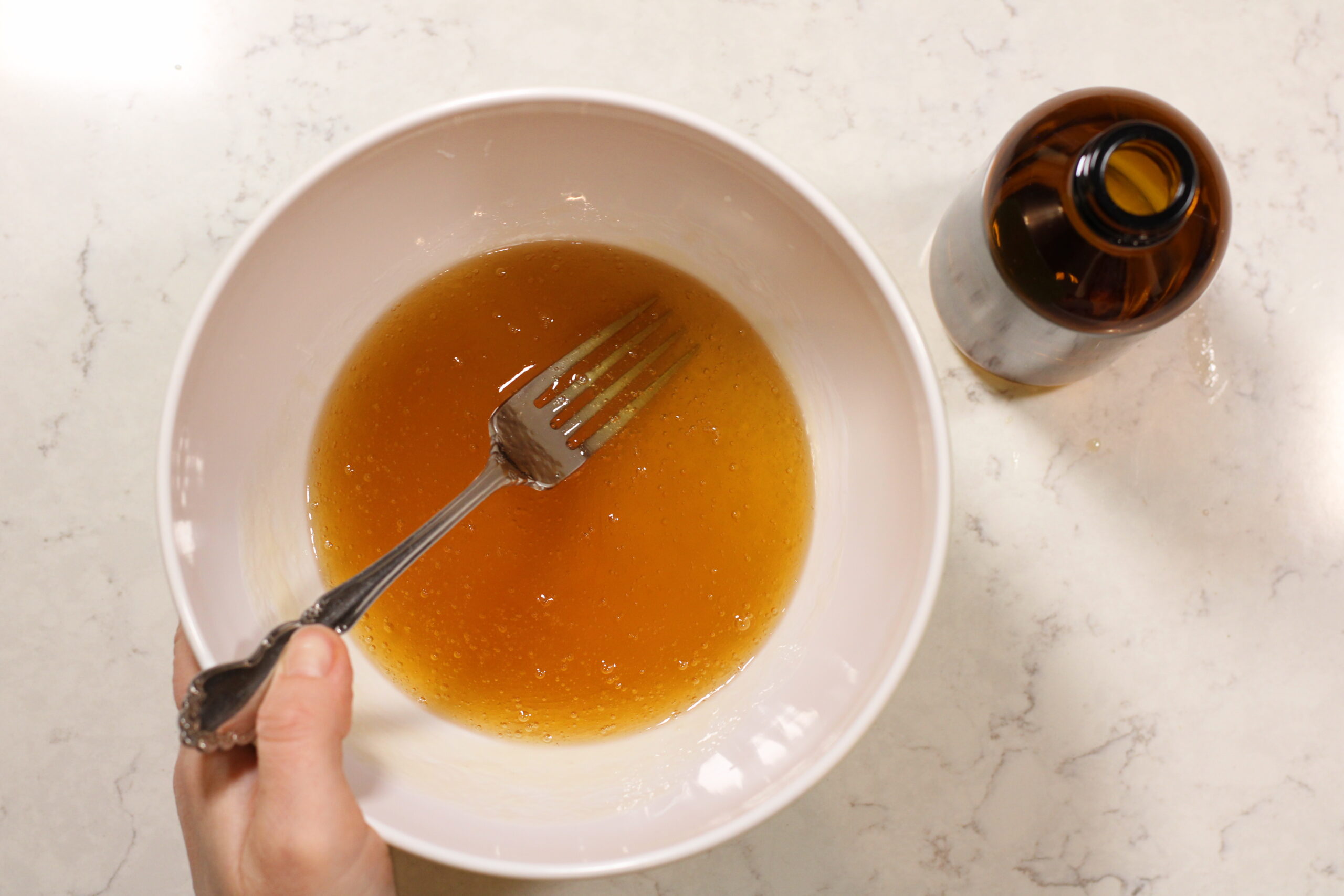
Using a small funnel, carefully pour face wash into your glass bottle and secure your pump top.
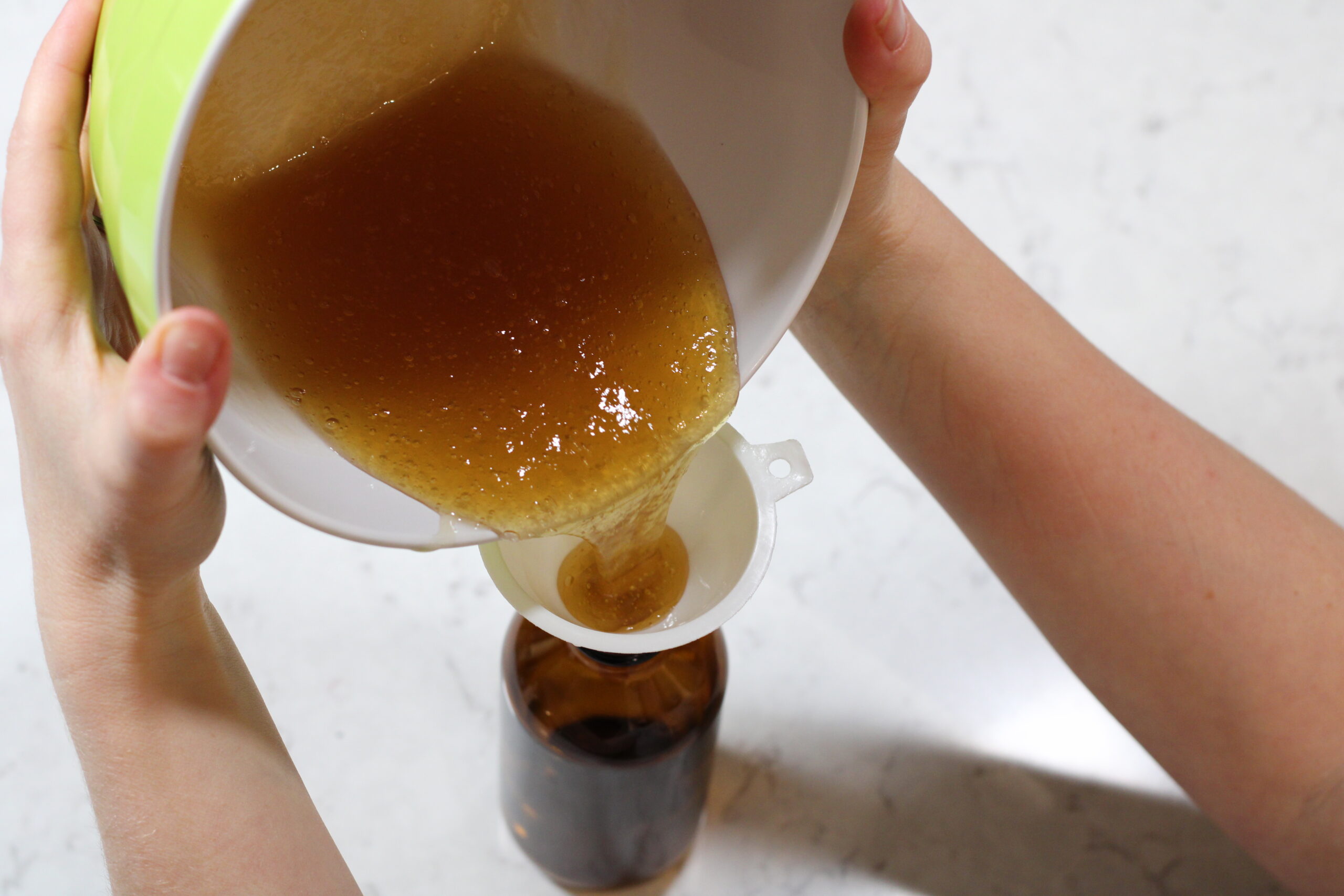
Store the homemade face wash in a cool, dry place.
To Use
Pump a small amount of the homemade face wash onto your hands, and gently massage it onto your face in a circular motion. Rinse with warm water and pat your face dry. And you’ll love applying our Easy Homemade Tallow Balm to freshly cleansed skin.
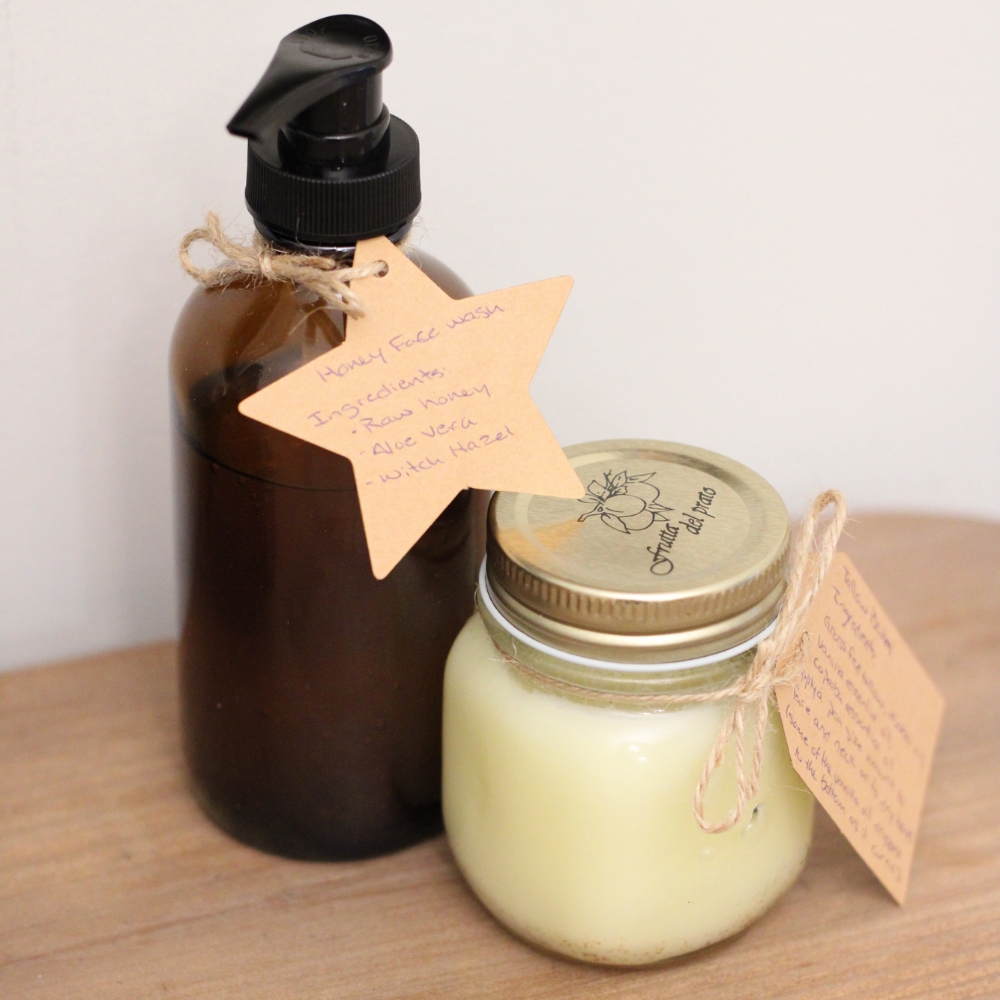
Notes
- As with any new skincare ingredient, it’s important to perform a patch test before extensive use.
- Easily turn it into a facial scrub! Once a week add a small amount of raw organic cane sugar to one pump of your raw honey facial cleanser, and gently massage it onto your face to help remove dead skin cells. Rinse with warm water and pat dry.
Customize Your Honey Face Wash With Essential Oils
While I prefer to omit essential oils from my face wash to fully enjoy the scent of raw honey as the primary ingredient, you can further personalize your homemade honey face wash recipe with the use of essential oils. Some essential oils supportive of skin health include lemon essential oil, tea tree oil, and lavender essential oil. When using essential oils in a facial cleanser, it’s important to dilute it properly to prevent skin irritation, especially for those with sensitive skin. As with any new skincare ingredient, perform a patch test before extensive use. I like to refer to this essential oil dilution chart as a guide, and personally stick to 0.5-1% dilution for topical application. It’s better to start lower and you can always add more if necessary!
Lavender Essential Oil
Lavender essential oil is a popular addition to natural facial cleansers, offering several benefits for the skin.
Anti-Inflammatory
Lavender oil possesses anti-inflammatory properties, helping to calm redness and irritation on the skin. It is beneficial for individuals with sensitive or inflamed skin conditions.
Antibacterial and Antimicrobial
The antibacterial properties of lavender oil make it effective in cleansing the skin and preventing the growth of acne-causing bacteria. It contributes to a clearer complexion.
Gentle Exfoliation
The mild exfoliating properties of lavender oil can contribute to removing dead skin cells, unclogging pores, and promoting smoother skin texture.
Tea Tree Oil
Tea tree oil, derived from the leaves of the Melaleuca alternifolia plant, is celebrated for its many benefits for the skin.
Antibacterial Properties
Thanks to its antibacterial properties, tea tree oil helps unclog pores and prevent the formation of acne and blackheads, penetrating the skin to remove debris and oil.
Anti-Inflammatory
Tea tree oil has anti-inflammatory properties that can help soothe and reduce redness and irritation in the skin.
Natural Astringent
Tea tree oil acts as a natural astringent, helping to tighten and tone the skin. This makes it beneficial for individuals with oily or combination skin, as it can help control excess oil production.
Lemon Essential Oil
Lemon essential oil is a versatile and refreshing addition to natural facial cleansers, offering several benefits for the skin.
Cleansing Properties
Lemon essential oil possesses natural antibacterial and antimicrobial properties, making it effective in cleansing the skin and helping to combat acne-causing bacteria.
Skin Brightening
The high concentration of vitamin C in lemon essential oil may contribute to a brighter complexion.
Oil Control
Lemon essential oil has astringent properties that can help control excess oil production on the skin, making it suitable for individuals with oily or combination skin.
Reducing Acne Scars
The exfoliating properties of lemon essential oil may contribute to reducing the appearance of acne scars over time, promoting a more even skin texture.
Natural Skin Toner
Lemon essential oil can act as a natural toner, helping to tighten and firm the skin. It may contribute to the reduction in fine lines and wrinkles for those seeking a natural solution to enhance skin elasticity.
How to Make a Homemade Face Wash With Raw Honey
Equipment
- small mixing bowl
- 8 oz. glass pump bottle
Materials
- 1/2 cup Raw Organic Honey (sometimes labeled as natural or unfiltered honey)
- 1/4 cup Organic Aloe Vera Gel (alcohol free)
- 2 TBSP Witch Hazel (alcohol free)
Instructions
- Add all ingredients to a small mixing bowl
- Using a fork or a small whisk, mix the ingredients thoroughly. Ensure that the honey is well incorporated with the Aloe Vera Gel and Witch Hazel to form a smooth and consistent mixture.
- Using a small funnel, carefully pour face wash into your glass bottle and secure your pump top.
- Store the homemade face wash in a cool, dry place.
- To Use: Pump a small amount of the homemade face wash onto your hands, and gently massage it onto your face in a circular motion. Rinse with warm water and pat your face dry
Notes
- Check out our moisturizing tallow balm to apply to freshly cleansed skin.
- As with any new skincare ingredient, it’s important to perform a patch test before extensive use.
- Easily turn it into a facial scrub! Once a week add a small amount of raw organic cane sugar to one pump of your raw honey facial cleanser, and gently massage it onto your face to help remove dead skin cells. Rinse with warm water and pat dry.
- Option to add lavender essential oil, tea tree oil, or lemon essential oil to your homemade honey face wash recipe.
- I like to refer to this essential oil dilution chart as a guide, and personally stick to 0.5-1% dilution for topical application. It’s better to start lower and you can always add more if necessary.
